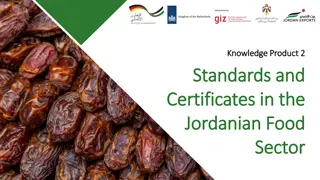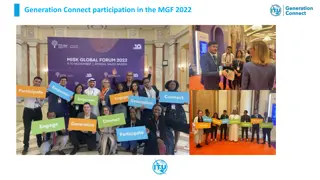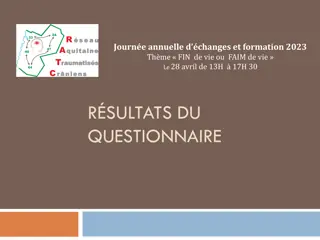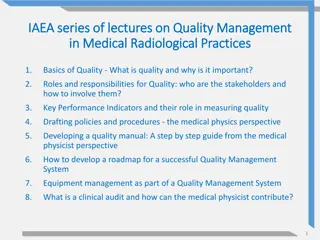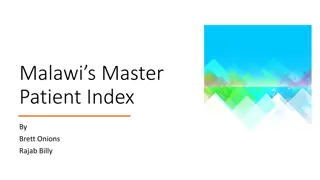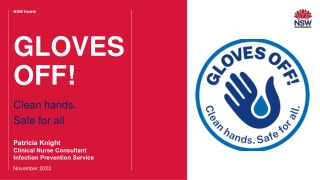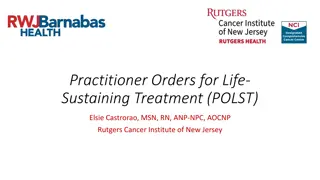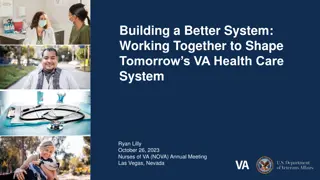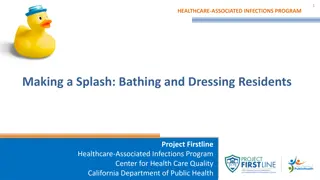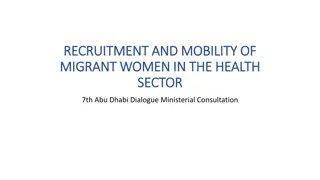Overview of Healthcare and Life Science Market in Saudi Arabia
Saudi Arabia's healthcare and life sciences sectors are a priority, with significant investments and opportunities for firms in medical equipment, pharmaceuticals, and more. The Department for International Trade aims to support UK entities in seizing trade opportunities and fostering a culture of exporting. Key players in these sectors include both public and private entities, offering a range of opportunities for international partnerships and growth.
Download Presentation
Please find below an Image/Link to download the presentation.
The content on the website is provided AS IS for your information and personal use only. It may not be sold, licensed, or shared on other websites without obtaining consent from the author. Download presentation by click this link. If you encounter any issues during the download, it is possible that the publisher has removed the file from their server.
Presentation Transcript
Saudi Arabia Market Overview Healthcare and Life Science
Department for International Trade Objectives Department for International Trade Objectives Enable and support firms to seize the opportunities of trade and international investment to establish a culture of exporting in the UK. Ensure the UK is recognised as the best place to invest and to attract, retain and grow international investment that strengthens the economy. Open markets, building a trade framework with new and existing partners which is free and fair. Use trade and investment to underpin the Government s agenda for a Global Britain and its ambitions for prosperity, stability and security worldwide.
Supporting UK entities Supporting UK entities Support the strategic partnership between UK-Saudi Arabia and align that with our prosperity team who support the policy part of our engagements. Provide a wide range of commercial and market entry advice. Connecting companies with commercial opportunities and top stake holders. Organise and support focused inward focused visits. Organise trade mission with a focused themes that fits with the opportunities in the market. Support exhibition both in Saudi Arabia and in the UK and build a marketing plan around them such as, trade mission webinar, events, round tables. Not all of our services are for free (OMIS).
The KSA Healthcare and Life Sciences Sector Healthcare and Life Sciences are priority sectors for Saudi Arabia. Allocated a budget of 11.6 bn for 2017. Key Public Sector buyers are the Ministry of Health, Ministry of Interior, Ministry of Defense, Ministry of Education, and the National Guard. The Private Sector has an increasingly important role to play, this is also highlighted under Vision 2030. Key private sector players include: Tamer Group, Fakeeh, Batterjee, and Al-Ajou Other, Quasi-Government players are: Saudi Aramco, Saudi Basic Industries Corporation (SABIC), Saudi Telecommunication Company (STC) Key UK players in KSA are
KSA Healthcare Opportunities Demand for medical equipment, pharmaceuticals, digital health, and education & training. The current market for medical devices is dominated by imports, which contribute to nearly 75% of the total medical device market. The USA and the UK contribute the most to the imports of medical devices in Saudi Arabia. Those in demand include X-rays, CT scanners, Monitors, Ultrasound, Advanced Imaging, Surgical equipment. The pharmaceutical market in Saudi Arabia estimated around $5.5 billion in 2017, with excepted grow to $5.6 billion by 2030. There are opportunities for Vaccines, Sterile injectables, Generics, Biosimilars, APIs. Important to note, there is a focus on improving the domestic manufacturing of medical devices and pharmaceuticals. There are incentives for UK organizations wanting to set up local manufacturing.
KSA Routes to Market/Tips for Doing Business Most common routes to market are as follows: Agent / Distributor Local representative (access to tenders) Access to local technology incubators (i.e. BADIR) and technology/healthcare investment funds (i.e. Riyadh Techno Valley/PIF). Develop networks and relationships Overseas Delivery Partners AEI (trade/ incubator services) Familiarize yourself with traditions, culture, religion, customs etc. ** DUE DILIGENCE & LEGAL ADVICE RECOMMENDED**
Vision 2030 The program aims to restructure the health sector in the Kingdom to be a comprehensive, effective and integrated health system that is based on the health of the individual and society (including the citizen, the resident and the visitor). The program depends on the principle of value-based care, which ensures transparency and financial sustainability by promoting public health and preventing diseases, in addition to applying the new model of care related to disease prevention. The Privatization Program aims to enhance the role of the private sector in providing services and making government assets available.
Case Study; Kings College King s college Launch in Jeddah, Saudi Arabia DIT supported the entire process from their first scoping visit to the Kingdom of Saudi Arabia, in 2016, to the introduction to their now Saudi investment arm, the Bugshan group. In 2022, The British mission in Saudi hosted a reception in Jeddah, on behalf of King s and Ashmore to celebrate this milestone. The reception was attended by key Healthcare figures in the Kingdom The Saudi Public investment fund (PIF) joined the Bugshan group as investors. paving the way for more wellbeing centres across the Western region of Saudi Arabia. The first phase of the project, due to be completed in Q3 of 2023 will launch the 150 bed capacity hospital in Jeddah. n 2024/25 The project will expand by another 100 beds.
Case Study Astra Zenica The Partnership for Healthcare System Sustainability and Resilience (PHSSR) in Saudi Arabia The Partnership for Health System Sustainability and Resilience (PHSSR) is global collaboration between academic, governmental, non-governmental, life sciences, healthcare and business organizations aimed at studying and helping to build health systems that are both resilient to crises and sustainable in the face of long-term stresses. The PHSSR was established in 2020 by the London School of Economics, the World Economic Forum, and AstraZeneca, who were later joined by global-level partners that include Royal Philips, KPMG, Apollo Hospitals and the Center for Asia-Pacific Resilience and Innovation. The partnership also includes additional organisations at the regional and national levels such as the Saudi Ministry of Health, the Ministry of National Guard Health Affairs.





